You’re probably reading this because your skin is crying out for help, and honestly, it’s about time! Dehydrated skin can be super frustrating and even painful, but don’t worry, you’re on the right track. By following the simple steps outlined in this guide, you’ll be on your way to glowing, hydrated skin in no time, and you can say goodbye to dryness and irritation. Get ready to give your skin the love it deserves!
Table of Contents
Key Takeaways: Steps For A Skincare Routine To Hydrate Dehydrated Skin
To establish an effective skincare routine for dehydrated skin, consider the following points:
- Start with a gentle cleanser that effectively removes dirt and impurities without stripping the skin of its natural oils, helping to hydrate and balance the skin’s pH.
- Incorporate a toner that is formulated to help balance the skin’s pH and prepare it for further product absorption, reducing the appearance of pores and leaving the skin feeling refreshed.
- Use a serum rich in hyaluronic acid or ceramides to help lock in moisture and support the skin’s natural barrier function, reducing trans-epidermal water loss.
- Apply a moisturizer that provides long-lasting hydration and helps to repair the skin’s barrier, choosing a formulation suitable for your skin type, whether lightweight and oil-free or rich and nourishing.
- Exfoliate gently using a chemical exfoliant containing alpha-hydroxy acids (AHAs) or beta-hydroxy acids (BHAs) to help remove dead skin cells and improve skin texture and tone.
- Apply a face mask once or twice a week to provide an intensive dose of hydration and nourishment, looking for ingredients like hyaluronic acid, glycerin, or niacinamide to help plump and firm the skin.
- Maintain consistent hydration levels throughout the day by drinking plenty of water and limiting exposure to harsh environmental factors such as extreme temperatures, dry air, and pollution.
Understanding Dehydrated Skin
Your skin is a delicate balance of oil and water, and when it gets out of whack, you can end up with dehydrated skin. This can be a real problem, as it can lead to a range of issues, including dryness, irritation, and premature aging. To tackle this, you need to understand what’s going on with your skin.

Types of Dehydrated Skin
You may be surprised to learn that there are different types of dehydrated skin, including:
- Genetic dehydrated skin, which is passed down from your parents
- Environmental dehydrated skin, which is caused by factors like UV rays and pollution
- Lifestyle dehydrated skin, which is caused by things like smoking and not drinking enough water
- Product-related dehydrated skin, which is caused by using the wrong skincare products
- Medical condition-related dehydrated skin, which is caused by conditions like diabetes and thyroid disorders
After understanding the different types of dehydrated skin, you can start to tackle the issue.
Understanding the complexities of dehydrated skin can be a bit overwhelming, but breaking it down into a simple table can help:
| Types of Dehydrated Skin | Cause |
|---|---|
| Genetic | Passed down from parents |
| Environmental | Caused by UV rays and pollution |
| Lifestyle | Caused by things like smoking and not drinking enough water |
| Product-related | Caused by using the wrong skincare products |
| Medical condition-related | Caused by conditions like diabetes and thyroid disorders |
Factors that Contribute to Dehydration
Little do you know, there are many factors that can contribute to dehydrated skin, including:
- Harsh skincare products that strip your skin of its natural oils
- Not drinking enough water, which can leave your skin parched and dry
- Smoking, which can reduce blood flow to the skin and cause dehydration
- UV rays, which can cause photoaging and dehydration
- Pollution, which can cause inflammation and dehydration
Knowing the factors that contribute to dehydration can help you take steps to prevent it and keep your skin healthy and hydrated.
It is worth noting that some factors can have a significant impact on the health of your skin, such as:
- Genetic predisposition, which can make you more prone to dehydrated skin
- Environmental factors, such as UV rays and pollution, which can cause dehydration and premature aging
- Lifestyle choices, such as smoking and not drinking enough water, which can exacerbate dehydrated skin
- Skincare routine, which can either help or <strong|hinder the health of your skin
- Diet, which can impact the overall health of your skin
Knowing the factors that contribute to dehydration can help you take steps to prevent it and keep your skin healthy and hydrated.
Preparing for a Skincare Routine
Assuming you’ve decided to take the first step towards hydrating your dehydrated skin, it’s time to get started. Your skin is a vital part of your overall health, and taking care of it can make a significant difference in how you look and feel. Before you begin, it’s imperative to understand that a consistency is key when it comes to a skincare routine. You’ll need to commit to following your routine regularly, ideally twice a day, to see noticeable improvements in your skin’s hydration levels. This will involve setting aside a few minutes each morning and evening to cleanse, moisturize, and protect your skin.
Equally important is being patient and giving your skin time to adjust to the new routine. It may take some time to notice the effects, so don’t get discouraged if you don’t see immediate results. As you prepare for your skincare routine, think about your lifestyle and how it may impact your skin. For example, if you have a busy schedule, you may need to opt for quick and easy products that can be applied on-the-go. On the other hand, if you have more time to devote to your skincare, you may want to consider more elaborate routines that involve multiple steps and products.

Essential Products for Hydration
Clearly, the products you choose will play a significant role in hydrating your dehydrated skin. You’ll want to look for products that contain hyaluronic acid, ceramides, and niacinamide, as these ingredients are known to help lock in moisture and support the skin’s natural barrier function. When choosing products, consider your skin type and concerns, and choose products that are gentle and non-irritating. For instance, if you have sensitive skin, you may want to opt for fragrance-free products that are less likely to cause irritation.
Evidently, the right products can make all the difference in achieving hydrated and healthy-looking skin. You’ll want to have a cleanser, toner, essence, serum, and moisturizer in your routine, as each of these products serves a unique purpose in hydrating and protecting your skin. For example, a toner can help balance your skin’s pH, while a serum can provide an intense dose of hydration and anti-aging benefits.
Tips for Choosing the Right Products
Even if you’re new to skincare, you can still make informed decisions when it comes to choosing the right products for your skin. Here are some tips to keep in mind:
- Look for products containing natural ingredients that are gentle on your skin.
- Choose products that are formulated for your specific skin type and concerns.
- Be wary of products with harsh chemicals that can strip your skin of its natural oils.
Knowing how to choose the right products can be overwhelming, but with a little practice, you’ll become a pro at selecting the best products for your skin.
Above all, the key to choosing the right products is to do your research and read reviews from other users. Here are some additional tips to consider:
- Pay attention to the ingredient list and look for products with soothing ingredients like aloe vera and green tea.
- Consider products with antioxidants that can help protect your skin from environmental stressors.
- Don’t be afraid to consult with a dermatologist or skincare professional if you’re unsure about what products to use.
Knowing what works best for your skin takes time and patience, but with the right products and a consistent routine, you can achieve the hydrated and healthy-looking skin you deserve.
Step-by-Step Skincare Routine
Not to worry, hydrating dehydrated skin is easier than you think, and it all starts with a simple, yet effective skincare routine. To get you started, here’s a breakdown of the products you’ll need and when to use them:
| Product | Frequency of Use |
|---|---|
| Cleanser | Twice a day |
| Toner | Twice a day |
| Moisturizer | Twice a day |
| Face mask | Once or twice a week |
This routine may seem like a lot to take in, but trust us, your skin will thank you for the extra love and care. By following this routine, you’ll be on your way to achieving healthy, hydrated skin in no time.
Assuming you’re ready to get started, let’s investigate the specifics of your morning and nighttime routines.
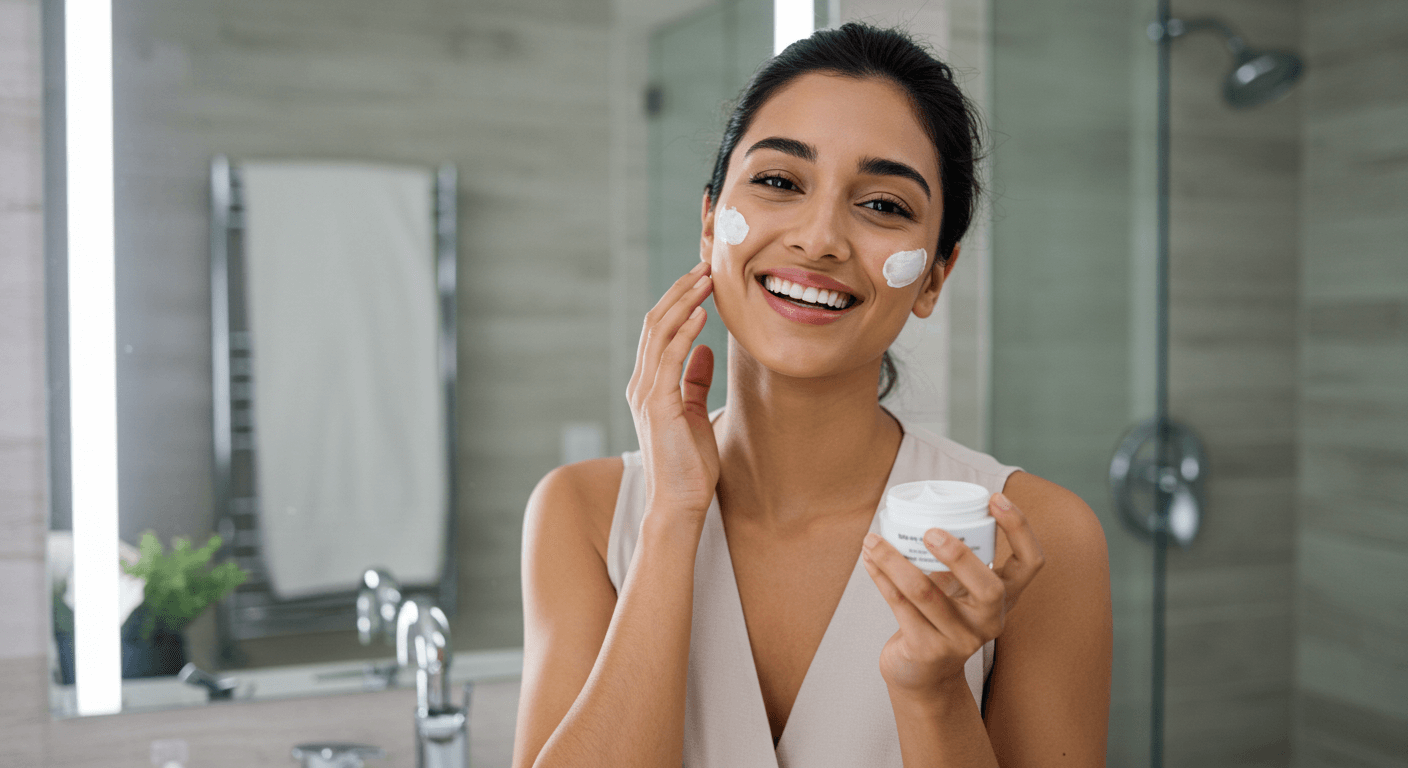
Morning Routine for Hydration
You’ll want to start your day off right with a gentle cleanser that won’t strip your skin of its natural oils. Look for a cleanser that’s formulated for your skin type and contains soothing ingredients like aloe vera or chamomile. After cleansing, follow up with a toner to help balance your skin’s pH and prepare it for the rest of your skincare products. Finally, apply a lightweight moisturizer that won’t clog your pores or leave your skin feeling greasy.
Nighttime Routine for Intensive Hydration
Now that you’ve made it through the day, it’s time to give your skin some extra TLC. Start by cleansing your skin with a rich, nourishing cleanser that will help to remove all the dirt and impurities that have built up throughout the day. Next, apply a toner to help soothe and calm your skin, followed by a thick, hydrating moisturizer that will help to lock in moisture and support the skin’s natural barrier function.
Intensive hydration is key to achieving healthy, hydrated skin, and your nighttime routine is the perfect time to give your skin the extra moisture it needs. By using a rich, hydrating face mask one or two times a week, you can provide your skin with an intensive dose of hydration that will leave it feeling soft, smooth, and supple. Just be sure to choose a face mask that’s formulated for your skin type and contains soothing, nourishing ingredients that won’t irritate or dry out your skin. With consistent use, you can say goodbye to dry, dehydrated skin and hello to a healthy, radiant complexion.
Additional Tips for Hydrating Dehydrated Skin
Once again, you’re on the right track to achieving healthy, hydrated skin by following a consistent skincare routine. To take it to the next level, consider the following tips:
- Use a humidifier to add moisture back into the air, especially during dry winter months
- Stay hydrated from the inside out by drinking plenty of water throughout the day
- Avoid harsh products that can strip your skin of its natural oils, leading to further dehydration
Thou shalt see a significant improvement in your skin’s overall appearance and texture by incorporating these simple yet effective tips into your daily routine.
As you work to hydrate your dehydrated skin, keep in mind that it’s not just about the products you use, but also about lifestyle habits and dietary choices. By making a few simple adjustments, you can help support your skin’s natural barrier function and lock in moisture. For example, getting enough sleep and managing stress can help reduce inflammation and promote healthy skin. Additionally, be sure to exfoliate regularly to remove dead skin cells and allow your skin to breathe.
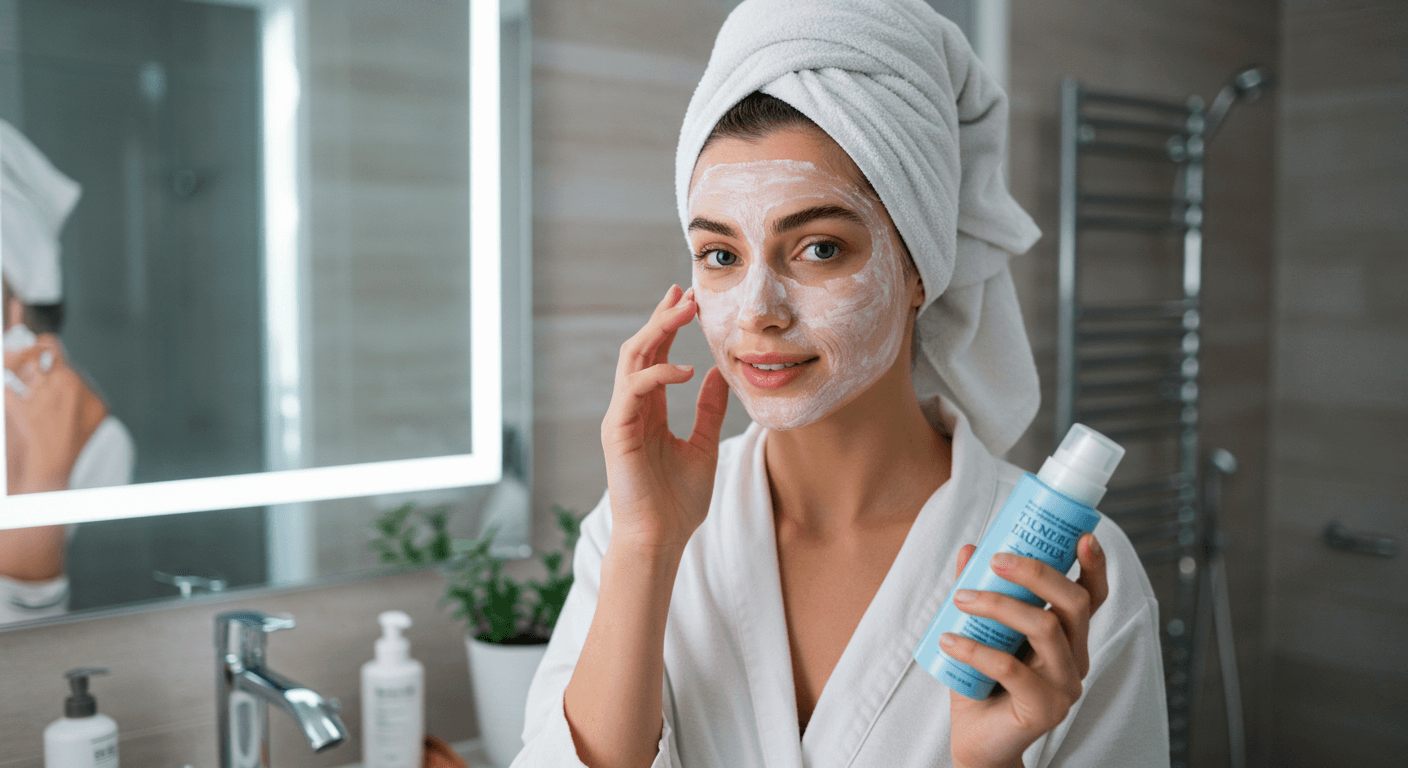
Lifestyle Changes for Better Hydration
Changes to your daily routine can have a significant impact on the health and hydration of your skin. By making a few simple swaps, you can help support your skin’s natural barrier function and lock in moisture. For example, try using a gentle cleanser and avoiding hot water, which can strip your skin of its natural oils. Instead, opt for warm water and a mild cleanser that won’t disrupt your skin’s pH balance.
Additionally, consider making environmental changes to help support your skin’s hydration. This can include using a humidifier in your home, especially during dry winter months, and avoiding air pollution and UV radiation, which can cause premature aging and dehydration. By taking these steps, you can help create a healthy environment that supports your skin’s natural function and promotes optimal hydration.
Dietary Adjustments for Skin Health
Lifestyle choices, such as your diet, can also play a significant role in the health and hydration of your skin. Eating a balanced diet rich in fruits, vegetables, and whole grains can help provide your skin with the nutrients it needs to function properly. Additionally, consider incorporating omega-3 rich foods and antioxidant-rich foods into your diet, as these can help reduce <strong=inflammation and promote healthy aging.
Plus, staying hydrated from the inside out by drinking plenty of water is imperative for maintaining healthy, hydrated skin. Aim to drink at least eight glasses of water a day, and consider increasing your intake if you live in a dry climate or engage in regular exercise. By making these simple dietary adjustments, you can help support your skin’s natural function and promote optimal hydration, giving you a healthy and radiant complexion.
Common Mistakes to Avoid
Many of you may be guilty of making some common mistakes that can further dehydrate your skin. Over-exfoliating is one of the most common mistakes, as it can strip your skin of its natural oils, leading to dryness and irritation. Another mistake is using harsh products that are not suitable for your skin type, which can disrupt the skin’s barrier function and cause dehydration. Additionally, not drinking enough water can also contribute to dehydrated skin, as it can lead to a lack of moisture in the skin.
When considering hydrating dehydrated skin, consistency is key. You need to stick to a skincare routine that works for you and avoid making changes too frequently. Sudden changes in your routine can shock your skin and cause more harm than good. You should also be careful not to overdo it with the products you use, as this can lead to clogged pores and other skin issues. By avoiding these common mistakes, you can help your skin to stay hydrated and healthy.
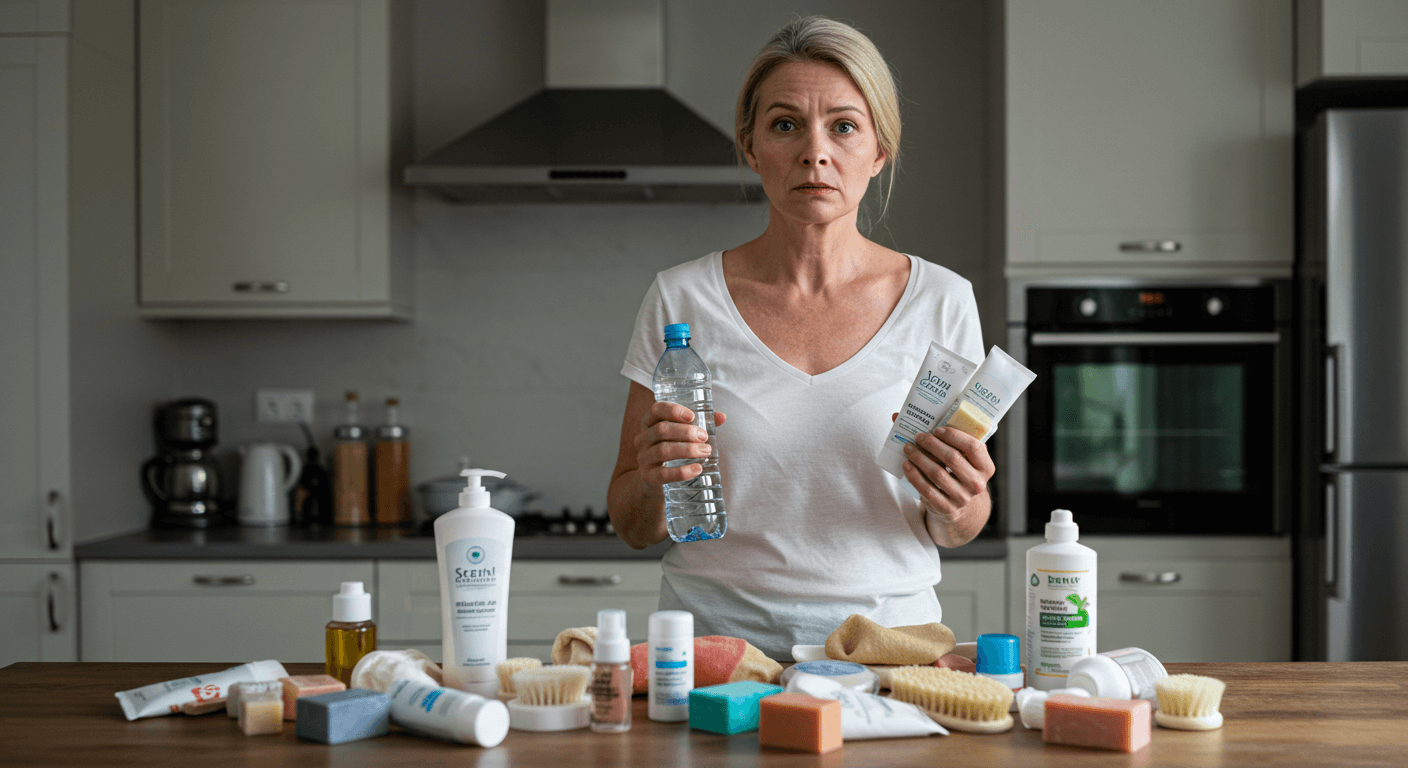
Pros of a Consistent Skincare Routine
Similarly, a consistent skincare routine can have numerous benefits for your skin. By sticking to a routine that works for you, you can improve the overall health and appearance of your skin. A consistent routine can also help to reduce the appearance of fine lines and wrinkles, giving you a more youthful and radiant complexion. Additionally, a consistent routine can help to balance your skin’s pH, which can help to prevent skin issues such as acne and irritation.
Furthermore, a consistent skincare routine can also help to boost your confidence, as you will be more likely to feel good about the way your skin looks. You will also be more likely to stick to your routine if you see positive results, which can help to create a positive feedback loop. By making a consistent skincare routine a part of your daily life, you can achieve the healthy and glowing skin you have always wanted.
Cons of Inconsistent Hydration Practices
Even small inconsistencies in your hydration practices can have negative effects on your skin. You may notice that your skin becomes dull and dry when you don’t drink enough water or use a moisturizer regularly. Inconsistent hydration practices can also lead to skin irritation and inflammation, which can be painful and uncomfortable. Additionally, inconsistent hydration can also cause your skin to become more sensitive, making it more prone to reactions and breakouts.
It is also worth noting that inconsistent hydration practices can have long-term effects on your skin. If you consistently fail to provide your skin with the moisture it needs, you may start to notice permanent damage such as wrinkles and fine lines. You may also notice that your skin becomes looser and less firm, which can be a sign of skin aging. By avoiding inconsistent hydration practices, you can help to prevent these negative effects and keep your skin looking healthy and youthful for years to come.
Customizing Your Skincare Routine
Keep in mind that everyone’s skin is unique, and what works for someone else may not work for you. As far as customizing your skincare routine, it’s all about understanding your skin type and concerns. You need to identify your skin type, whether it’s normal, dry, oily, or combination, and address specific concerns such as acne, hyperpigmentation, or sensitivity. To get started, consider the following:
- Assess your skin type and concerns
- Choose products that cater to your skin type
- Look for products with hyaluronic acid and ceramides for hydration
- Be patient and give your skin time to adjust
- Monitor your skin’s response to new products
The key to a successful skincare routine is finding the right balance of products that work for you.
Now, let’s break down the information into a table to make it easier to understand:
| Skin Type | Product Recommendations |
|---|---|
| Normal | Lightweight moisturizer, toner |
| Dry | Rich moisturizer, face oil |
| Oily | Oil-free moisturizer, clay mask |
| Combination | Balance of moisturizer and oil control |
| Sensitive | Fragrance-free products, soothing serum |
The most important thing is to listen to your skin and make adjustments as needed.

Considering Skin Types and Concerns
You will need to consider your skin type and concerns when customizing your skincare routine. You should take into account your skin’s unique needs and choose products that cater to those needs. For example, if you have dry skin, you’ll want to use a rich moisturizer to lock in hydration. On the other hand, if you have <strong{oily skin}, you’ll want to use an oil-free moisturizer to control shine. The key is to find a balance that works for your skin.
Adjusting Your Routine for Seasonal Changes
Your skincare routine should change with the seasons. As the weather changes, your skin’s needs will change too. For example, during the winter months, you may need to use a richer moisturizer to combat dryness, while in the summer months, you may need to use a lightweight sunscreen to protect your skin from the sun. You should also be aware of pollution and humidity levels, which can affect your skin’s health.
Another important aspect of adjusting your routine for seasonal changes is to pay attention to your skin’s response to different products and environments. If you notice any negative reactions, such as irritation or breakouts, you should make adjustments to your routine accordingly. The goal is to find a balance that works for your skin, and to keep your skin healthy and hydrated all year round. The key to success is to be flexible and adaptable, and to always prioritize your skin’s health.
To wrap up
Upon reflecting on the steps for a skincare routine to hydrate dehydrated skin, you’ve probably realized that it’s all about finding the right balance and being consistent. You’ve learned how to identify the signs of dehydrated skin, and now you’re equipped with the knowledge to give your skin the TLC it deserves. By following these simple steps, you’ll be on your way to achieving healthy, hydrated, and radiant skin. And, if you’re looking for more tips and tricks, you can always check out the 7 do’s and don’ts for dehydrated skin to take your skincare game to the next level.
As you launch on this skincare journey, you’ll notice a significant difference in the way your skin looks and feels. You’ll be glowing, and your skin will be thanking you for the extra love and care. So, go ahead and take the first step towards hydration, and don’t be afraid to get a little creative with your routine. With a little patience and practice, you’ll be a skincare pro in no time, and your skin will be the perfect reflection of your hard work. Now, go forth and hydrate, and don’t forget to share your favorite skincare tips with your friends and family – after all, sharing is caring, especially when it comes to achieving healthy, hydrated skin!
FAQ:
Q: What are the initial steps to identify and address dehydrated skin in a skincare routine?
A: To begin with, it’s important to assess your skin type and condition to understand the level of dehydration. Look for signs such as dullness, tightness, and the appearance of fine lines. Start by cleansing your skin with a gentle, non-stripping cleanser suitable for your skin type, followed by a toner that balances your skin’s pH. This initial step helps in removing dirt and impurities without stripping the skin of its natural oils, preparing it for further hydration.
Q: How can I choose the right products for hydrating my dehydrated skin?
A: Choosing the right products is vital for effectively hydrating dehydrated skin. Look for a moisturizer that is formulated for your skin type and contains humectants like hyaluronic acid, glycerin, or ceramides, which help retain moisture. Additionally, incorporating a serum rich in antioxidants and vitamins can provide extra nourishment and protection against environmental factors that cause dehydration. Always read the ingredient labels and opt for products that are fragrance-free and hypoallergenic to minimize the risk of irritation.
Q: What role does exfoliation play in a skincare routine for dehydrated skin, and how often should it be done?
A: Exfoliation is an important step in any skincare routine as it helps remove dead skin cells, allowing better penetration of hydrating products. For dehydrated skin, it’s best to use a gentle exfoliant containing alpha-hydroxy acids (AHAs) or beta-hydroxy acids (BHAs) one to three times a week, depending on your skin’s sensitivity and needs. Chemical exfoliants are generally safer for dehydrated skin than physical exfoliants, which can be too harsh and strip the skin of its moisture barrier.
Q: How can I lock in moisture and protect my skin from further dehydration throughout the day?
A: After applying your moisturizer and serum, consider using an occlusive moisturizer or a facial oil to lock in the previous layers of products. This helps prevent moisture loss throughout the day. Additionally, using a sunscreen with at least SPF 30 daily, even on cloudy days, is important to protect your skin from UV rays that can cause dehydration and damage. For extra protection, wear a hat and seek shade when spending time outdoors, especially during peak sun hours.
Q: Are there any lifestyle changes that can complement a skincare routine to help hydrate dehydrated skin from the inside out?
A: Yes, several lifestyle changes can significantly complement your skincare routine. Drinking plenty of water throughout the day helps keep your skin hydrated from the inside out. A diet rich in fruits, vegetables, and healthy fats, such as omega-3 fatty acids found in fish and nuts, supports skin health. Avoiding or limiting caffeinated and alcoholic beverages, which can act as diuretics, is also beneficial. Finally, managing stress through relaxation techniques like meditation or yoga can help reduce the skin’s stress response, which can lead to inflammation and dehydration.

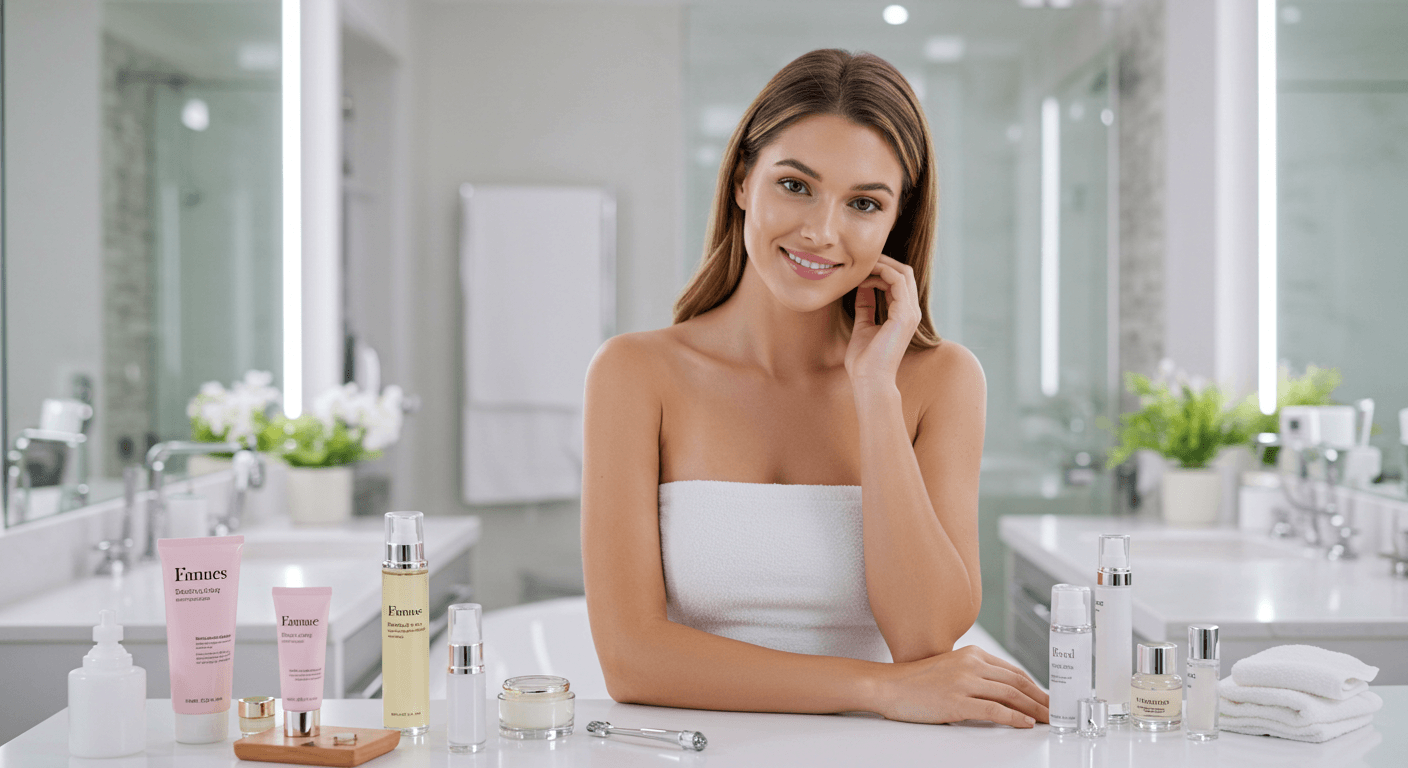


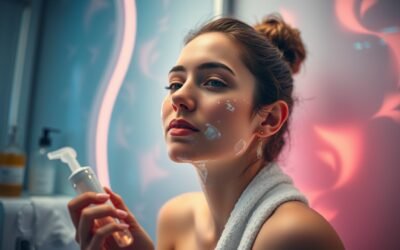

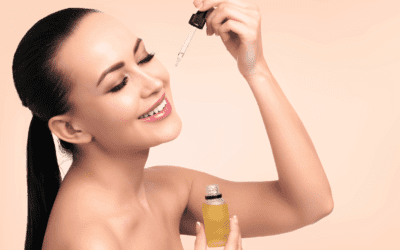

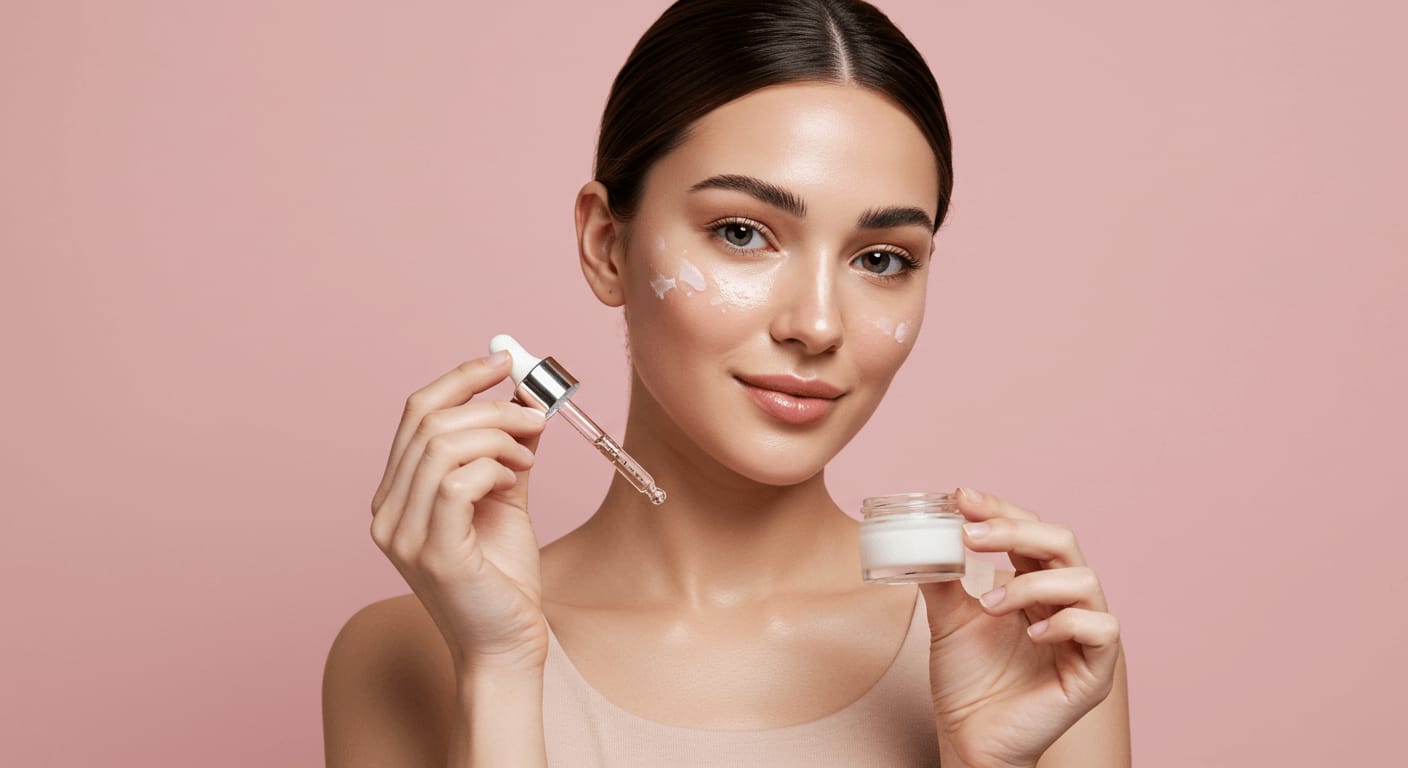









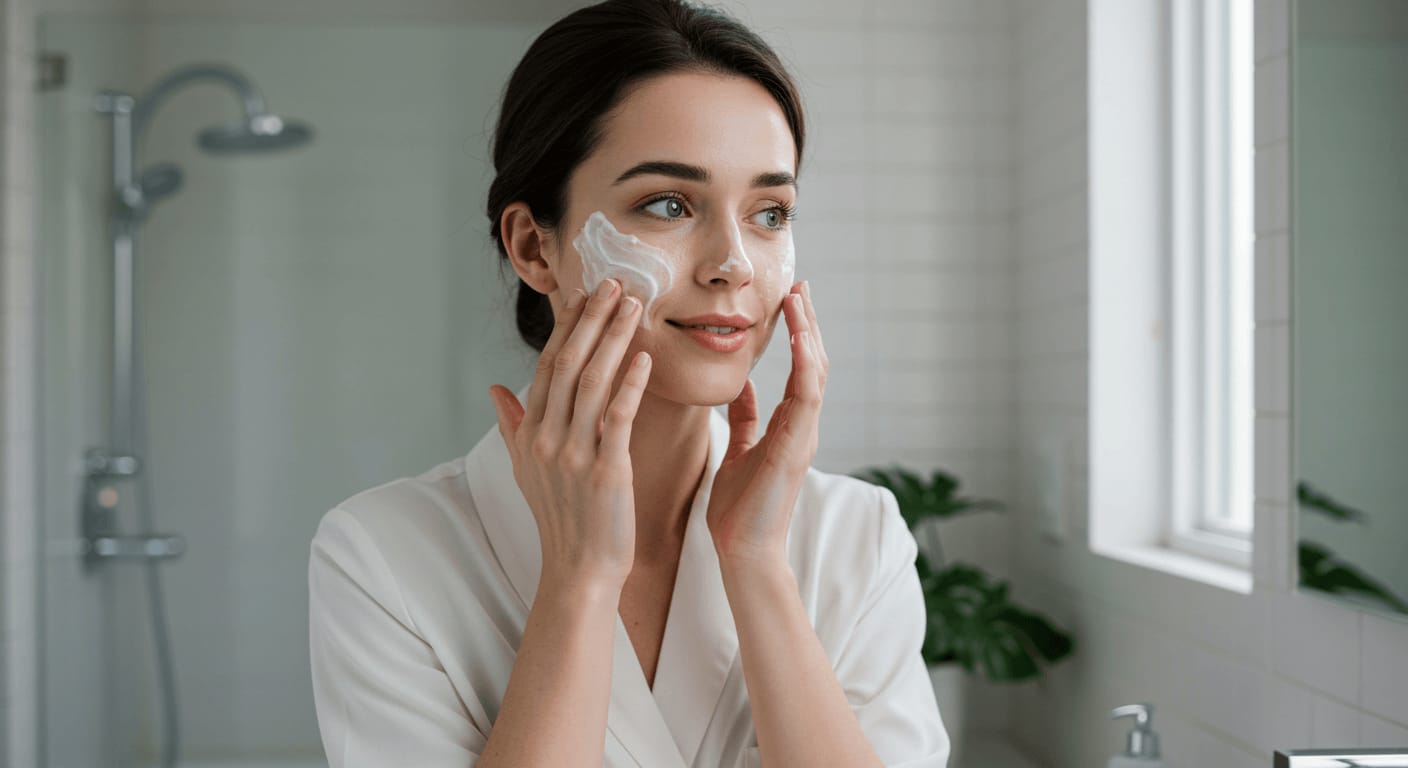








0 Comments